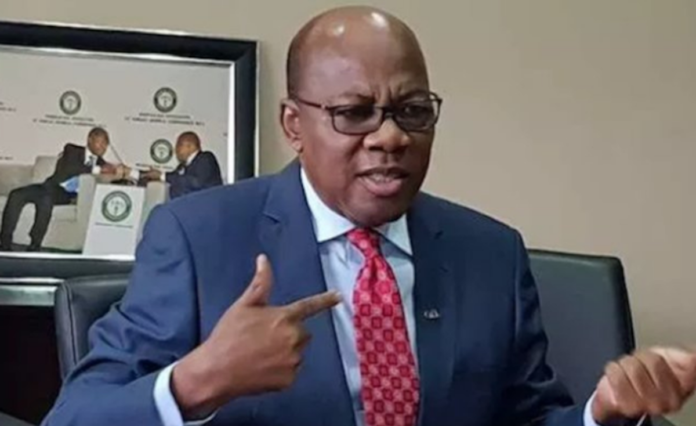Agbakoba has said President Tinubu must focus on key areas that will make the most impact to transform Nigeria.
Former President of the Nigerian Bar Association, Dr. Olisa Agbakoba, SAN, has identified slow implementation of key policies as the major challenge facing the administration of President Bola Tinubu, stressing that “government needs to be more passionate, needs to be more urgent.”
Assessing President Tinubu’s 365 days in office, Agbakoba noted that while he has made right policy choices, implementation of these policies have been a challenge.
According to Agbakoba, to fully realise his transformative vision and deliver on his campaign promises, it was crucial for Tinubu to focus on key areas that would make the most impact, such as security, power, and an emergency industrial revolution.
The legal luminary said the current pace of implementation is slow, and that the nation wants to see the same urgency and decisiveness demonstrated by a former President of the United States of America, President Franklin D. Roosevelt.
Agbakoba stated that during his first 100 days in office, President Tinubu should lead from the front, setting the tone and driving the execution of his agenda with unwavering commitment.

He said Tinubu must prioritise establishing a strong foundation of national order, unity, peace, and stability as a prerequisite for sustainable development.
Besides, Agbakoba said President Tinubu should facilitate a historic agreement akin to the Treaty of Westphalia by engaging with ethnic groups, the National Assembly, and diverse stakeholders to resolve fundamental questions around Nigeria’s political identity and arrangements for living together as one united entity.
Agbakoba also questioned the validity and legality of the Central Bank trying to fix values, adding that the job of the Central Bank is to stabilise the financial system.
He said, “The central bank governor is over-concerned with the numeric value of the Naira, so it’s now N1,500. You shouldn’t be concerned about that. It is the Minister of Finance who, using fiscal policy, puts money in the economy in order to stabilise hunger.
“That’s the job. I don’t know where this thing came from, the business of the central bank governor. Why are they not talking about fixing the currency against the Chinese currency? So, I would recommend that in the second year going, the CBN should depart from overshooting its remit and stay with monetary policy.
“What I would be recommending in the context of the coming 365 days is to look at what President Roosevelt did when he was in power in the ‘30s. He was very depressed, and the economy of Nigeria today is very depressed.
“President Tinubu should lead from the front, setting the tone and driving the execution of his agenda with unwavering commitment.
In addition to the areas already mentioned, the report emphasises the following priorities: Establish a Foundation for National Order: Tinubu must prioritise establishing a strong foundation of national order, unity, peace, and stability as a prerequisite for sustainable development. He should facilitate a historic agreement akin to the Treaty of Westphalia by engaging with ethnic groups, the National Assembly, and diverse stakeholders to resolve fundamental questions around Nigeria’s political identity and arrangements for living together as one united entity.
“Comprehensive Economic Recovery Plan: Drawing from recommendations in the OAL’s 2024 policy report, Tinubu has an opportunity to implement a sweeping New Deal-style economic recovery plan. This would involve enacting targeted reforms and sector strategies aimed at revenue generation, job creation, infrastructure development, and GDP growth across areas like maritime, aviation, space, financial services, oil/gas, mining, agriculture, and manufacturing. If implemented effectively, this could generate N100 trillion and over four million jobs.
“Strengthen Governance through Constitutional Reform: Tinubu has a major opportunity to overhaul Nigeria’s governance framework by spearheading the replacement of the 1999 Constitution with a new constitution that devolves powers, promotes unity, and strengthens democratic institutions.
“This constitutional reform process can incorporate public service reforms, judicial reforms, and measures to empower regulatory agencies for long-term good governance.




